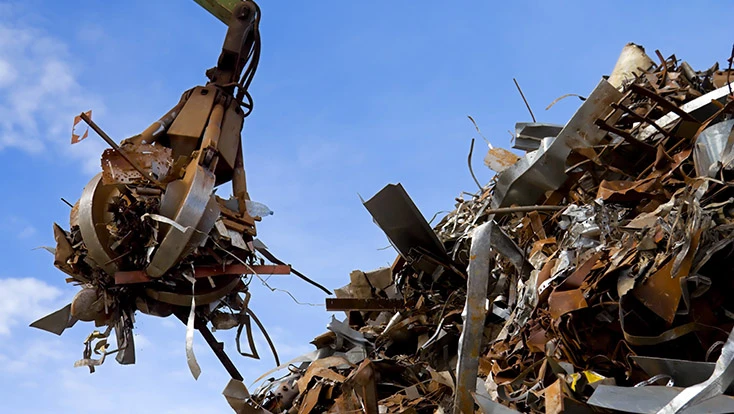
The Institute of Scrap Recycling Industries (ISRI), Washington, joins in the celebration of National Manufacturing Day Oct. 6, 2017, by highlighting the many positive contributions of the recycling industry to the U.S. manufacturing landscape. In 2016 alone, more than 130 million metric tons of metal, paper, plastic, glass, textiles, rubber and electronics were manufactured into specification grade commodities by the U.S. scrap recycling industry, the association says.
“National Manufacturing Day helps call attention to the critical role recyclers play in America’s overall economy and the variety of ways recycling affects one’s everyday life,” says Robin Wiener, president of ISRI. “The recycling industry is proud to be the first link in the manufacturing supply chain, as it provides a source of raw material to other manufacturers that is environmentally friendly compared to virgin material. In doing so, the industry has become a thriving economic engine, job creator, resource of sustainability, energy savings and global trade.”
ISRI says that since the dawn of civilization and the earliest attempts at manufacturing, humans have recognized the intrinsic value of scrap and the benefits associated with using and reusing existing products to create new goods. As U.S. manufacturing grew and became more complex, scrap recycling became more important, adapting not only to market drivers but also to shifting national priorities in the context of our finite natural resources.
The scrap recycling industry has made many contributions to the U.S. economy, according to ISRI:
- generating nearly $16.5 billion in export sales to 155 countries;
- directly and indirectly employing approximately 534,000 workers in 2016;
- generating nearly $117 billion annually in economic activity;
- drawing in $13.2 billion in revenue for federal, state and local governments; and
- lowering energy costs by producing recycled materials that require less energy during the manufacturing process than virgin materials.
National Manufacturing Day, currently in its sixth year, occurs on the first Friday of October. It was created by Founding Partner Fabricators and Manufacturers Association International (FMA) in 2012 and currently is produced by the National Association of Manufacturers (NAM) with contributions and support from the Manufacturing Institute (MI) and Hollings Manufacturing Extension Partnership (MEP).
Latest from Recycling Today
- Aqua Metals secures $1.5M loan, reports operational strides
- AF&PA urges veto of NY bill
- Aluminum Association includes recycling among 2025 policy priorities
- AISI applauds waterways spending bill
- Lux Research questions hydrogen’s transportation role
- Sonoco selling thermoformed, flexible packaging business to Toppan for $1.8B
- ReMA offers Superfund informational reports
- Hyster-Yale commits to US production





